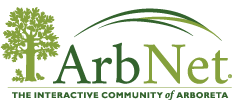Resources for reaching a broad audience through educational and public engagement programming. To contribute a resource to the Education and Public Engagement database, please contact the ArbNet Coordinator at arbnet@mortonarb.org.
Mission/Policy
- Program proposal worksheet (The Morton Arboretum)
- Information for instructors (The Morton Arboretum)
- Program planning worksheet (The Morton Arboretum)
- Instructor agreement template (The Morton Arboretum)
- Instructor welcome letter form (The Morton Arboretum)
Youth Programming/Education
- Virtual engagement K-12 bundles (The Morton Arboretum) - different themed activities (all free): Field Trips; Celebrate Trees!; Climate Change; Plants, Seasons, and Pollinators; Seed and Growth in Different Habits; Life Cycles and Adaptations; Energy and Ecosystems; Plant Growth and Reproduction; Photsynthesis and Respiration
- Plant Heros: hands-on materials to educate kids about ecosystems, forests, trees, pests and diseases, etc. (American Public Gardens Association)
- Youth program planning worksheet (The Morton Arboretum)
- Youth & family program evaluation form (The Morton Arboretum)
- Education Activity - Angiosperms and Gymnosperms (Lockerly Arboretum)
- Tree and Me Activity Kit (Green-Wood Cemetery)
- Field Trip Activities Handbook (The Brenton Arboretum)
- Field Trip Planning Guide (The Brenton Arboretum)
- Seed Your Future - the movement promote horticulture and inspire people to pursue careers working with plants
- Inspiring the Next Generation to Pursue Careers in Horticulture: Strategies for Public Gardens (Seed Your Future, 2018)
- Nature Rx-(Re) Connecting Humans with their Native Habitats (UC Davis Arboretum and Public Garden, Kiers & Parker, 2018)
- Growing a Nature Preschool (Queens Botanical Garden, Chicago Botanic Garden, & Newfields, Wolf et al., 2018)
- Beyond the Children's Garden Gate: Five Creative Ideas for Young Families (Frederik Meijer Gardens & Sculpture Park, Francke, 2018)
- Privet, Pollination and Preservation: Teaching about Conservation (State Botanical Garden of Georgia, Keber, 2018)
- Nature Based Learning Summit Proceedings (2018)
- Learn to Engage Modules - modules to learn how to engage diverse audiences for botanic garden staff and museum educators (Botanic Gardens Conservation International)
- Schoolyard Forest System Resource Library (Green Schoolyards America 2024)
- Outdoor Learning: The Importance of Trees
Adult Programming/Education/Interpretation
- Adult class evaluation form (The Morton Arboretum)
- Interpretive Master Plan (Green-Wood Cemetery)
- Interpretive Plan (The Wilbur D. May Arboretum and Botanical Garden, 2018)
- Pricing and Planning Continuing Education Programs (multi-organization collaboration, Laslette et al., 2018)
- Starting from Scratch, a Beginner's Guide to Developing New Events- American Public Gardens Assoc. Conf. Pres. 2018:
--Starting from Scratch (JC Raulston Arboretum)
--Developing New Events for the Small Garden (Smith-Gilbert Gardens) - Education & Outreach Presentation – ArbNet Conference (2021)
Audience Research & Evaluation
- A Guide to Conducting Culturally Responsive Evaluations (U.S. National Science Foundation, Frierson et al., 2002)
- Considerations for Conducting Evaluation Using a Culturally Responsive and Racial Equity Lens (Center for Culturally Responsive Engagement, Elam & Walker 2021)
- Why am I always being researched? (Chicago Beyond Equity Series, 2019)
- Community Survey and Engagement Report (University of Washington Botanic Gardens - Washington Park Arboretum, 2023)
- Survey Responses Identify Community Member Interest in Visiting Public Gardens and Arboreta (HortTechnology, Kelley et al., 2020)
- Pretesting public garden exhibits enhances their educational value for people with diverse abilities (HortTechnology, Larson & Hoover 2003)
Science Communication
- Sparking Curiosity (Longwood Gardens, Turner-Skoff, 2024)
- Sharing Science (Roots special edition, Botanic Gardens Conservation International, 2016)
- Effective Communication, Better Science (Scientific American, Feliú-Mójer, 2015)
- Inclusive Science Communication Starter Kit (U.S. National Science Foundation & University of Rhode Island - Metcalf Institute, DiCenzo et al., 2021)
- Communicating Science Effectively (U.S. National Academies, 2017)
- Storytelling Using the ABT (And, But, Therefore) Method (TED, Randy Olson, 2013)
Community Programs & Participatory Science
- How Can Botanic Gardens Grow Their Social Role (Communities in Nature, Lynch, 2015)
- Interagency Citizen Science Toolkit (Schoodic Institue at Acadia National Park, 2024) - toolkit, case studies, and training modules
- Citizen Science (SciStarter)
- A Gamicfication Approach: Utilizing Citizen Science to Increase Interest in STEM (The North Carolina Arboretum, Marchal, 2018)
- Chicago Region Trees Initiative (The Morton Arboretum)
- Forest Releaf of Missouri (Forest Releaf Arboretum)
Public Events
- Celebrating Arbor Day (Arbor Day Foundation)
- Cemetery Arboreta Sample Events (ArbNet)
Interpretation
- Navigating nature, culture and education in contemporary botanic gardens (Environemntal Education Research, Sanders et al., 2018)
- Care for the Rare - interpretation for conservation (Botanic Gardens Conservation International)
- BGCI Interpretation Resources (Botanic Gardens Conservation International)
- Stretch Your Exhibit Beyond Typical: Build New Audiences and Collaboration (The Dow Gardens, Morris Arboretum, The Morton Arboretum, Lumbert et al., 2016)
- Education and Events Visitation Report (Moore Farms Botanical Garden, Turk, 2015)
- Engaging Visitors with Exhibits and Seasonal Displays (Atlanta Botanical Gardens, 2017)
- Fusing Seasonal Display Planning (Chanticleer Garden, Benarcik, 2017)
- Diplaying a Large and Institution-wide Thematic Display (Chicago Botanic Garden, Pollak, 2017)
- Large Scale Conservatory Displays (Longwood Gardens, Sutton, 2017)
- Seasonal & Annual Planning (Rotary Botanical Gardens, 2017)
Volunteer Organizing:
- Volunteer Program Manual (Longwood Gardens, 2012)

